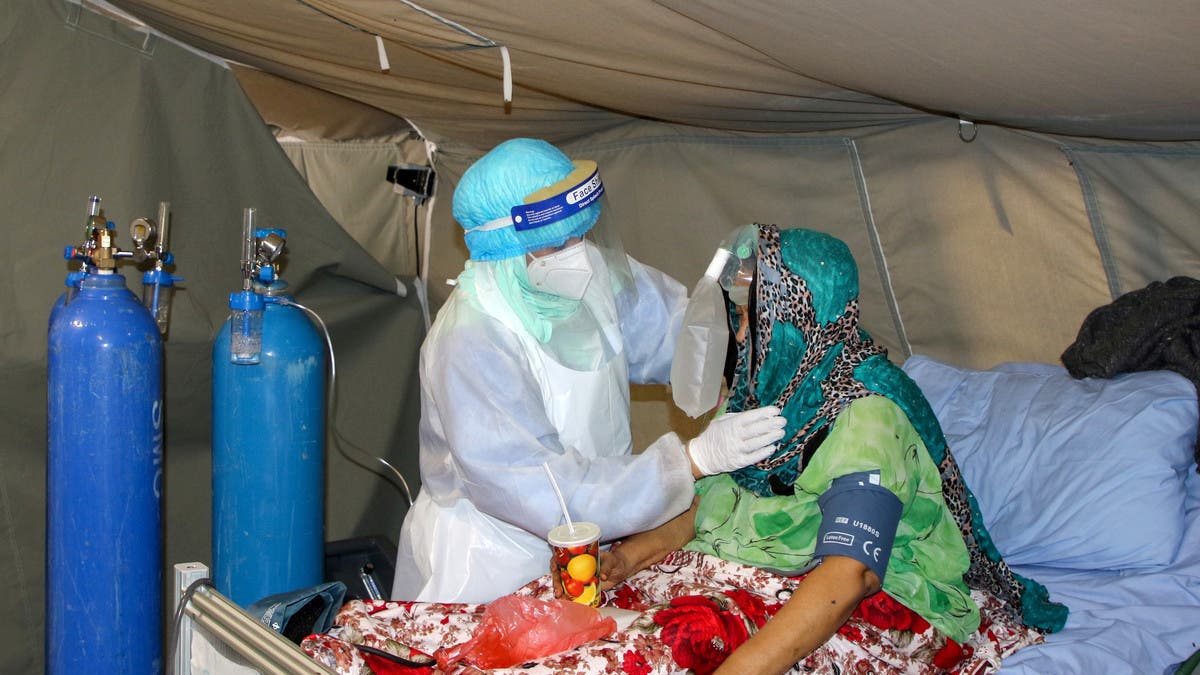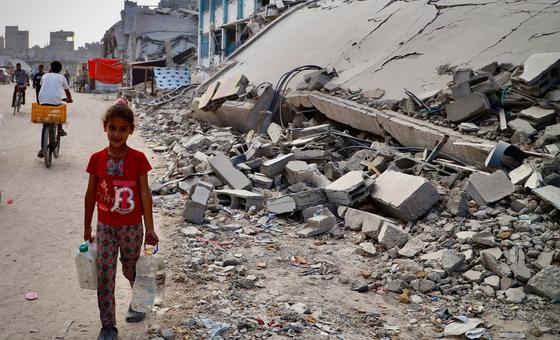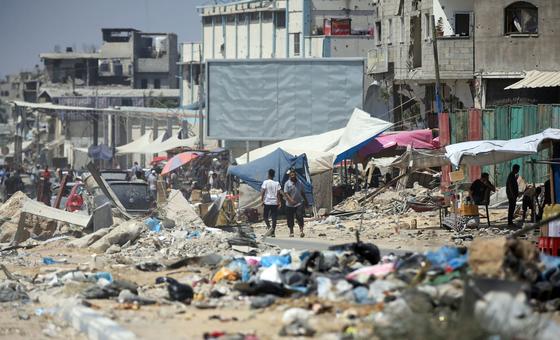The emergence of the Omicron coronavirus variant has highlighted a global need for COVID-19 vaccine equality, especially in conflict zones, the International Committee of the Red Cross (ICRC) has warned, as countries grapple with the new strain.
Omicron has gained a foothold in Asia, Africa, the Americas, the Middle East and Europe and has reached seven of the nine provinces of South Africa, where it was first identified. Many governments have tightened travel rules to keep the variant out.
For more coronavirus news, visit our dedicated page.
Much remains unknown about Omicron, which has been detected in more than two dozen countries, but Esperanza Martinez, the head of the COVID-19 Crisis Management Team at the ICRC, said the variant highlights how vulnerable all nations are when large parts of the world aren’t vaccinated.
“Vaccinating the tens of millions of people living in conflict zones and other hard-to-reach areas is an absolute necessity if we are to resolve the COVID-19 pandemic,” said Martinez in a statement.
“Only a small sliver of vaccines has so far reached conflict zones, where families and entire communities often live without access to basic health care services.”
The ICRC estimates that more than 100 million people now live in areas under full or fluid control of non-state armed groups, often leaving communities out of reach of vaccination campaigns run by ministries of health.
“How do we reach them?,” asked Martinez. “How do we ensure they are not left out of vaccine efforts, and thus potentially exposed to new COVID variants? It must be through a global, decisive and collective effort.”
Martinez said the ICRC’s role in this complex task is to support health authorities and Red Cross or Red Crescent National Societies in the implementation of national vaccination plans.
The ICRC also facilitates vaccinations in last-mile areas by helping gain access across frontlines through its neutral, humanitarian work, and by helping with the logistics of transport and cold chains.
“Armed conflicts are unpredictable,” said Martinez. “Infrastructure and health systems are often weakened and in a bad shape. Negotiations with armed groups can be time consuming and sensitive. Vaccinating populations in these areas is difficult and delicate. It is, however, necessary.”
Vaccination rates in countries experiencing conflict are disturbingly low.
For all the latest headlines follow our Google News channel online or via the app.
In Ethiopia, South Sudan and Yemen around 1.2 percent of the population is fully vaccinated. Somalia is at 3.5 percent, while Syria is at 4 percent. That compares to a fully vaccinated rate of 43 percent globally, according to figures from Our World In Data.
“Omicron’s fast-moving effect on the world shows how important it is to increase vaccination rates everywhere to reduce the risk to health workers and populations and the potential emergence of additional variants of concern,” said Martinez. “Vaccinating people in conflict zones is a necessary step to finding a way out of the pandemic. We must also vaccinate detainees and people migrating to new locations.”
Read more:
WHO chief scientist says COVID-19 Omicron variant ‘quite infectious,’ must not panic
‘This is insane’: Africa COVID vaccination drive tragically behind, short on shots
First billion COVID-19 vaccine doses administered globally

 World3 years ago
World3 years ago
 World2 years ago
World2 years ago
 Entertainment7 years ago
Entertainment7 years ago
 World7 years ago
World7 years ago
 Entertainment7 years ago
Entertainment7 years ago






